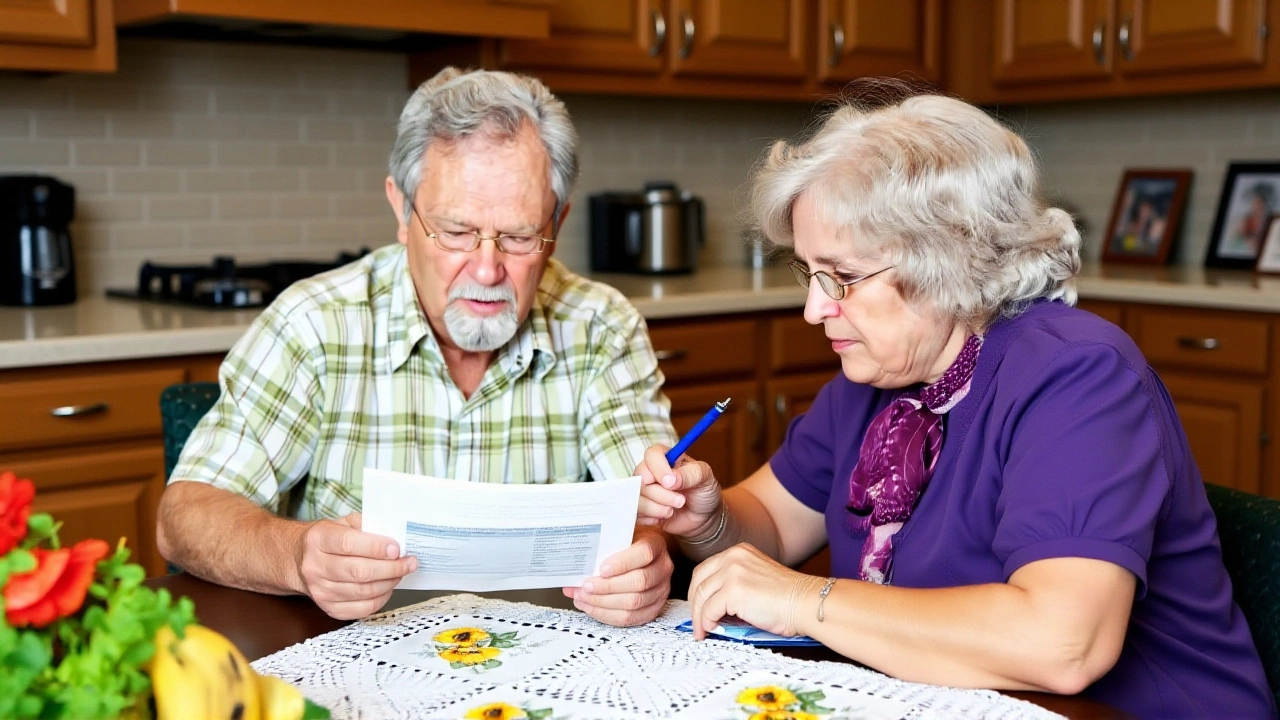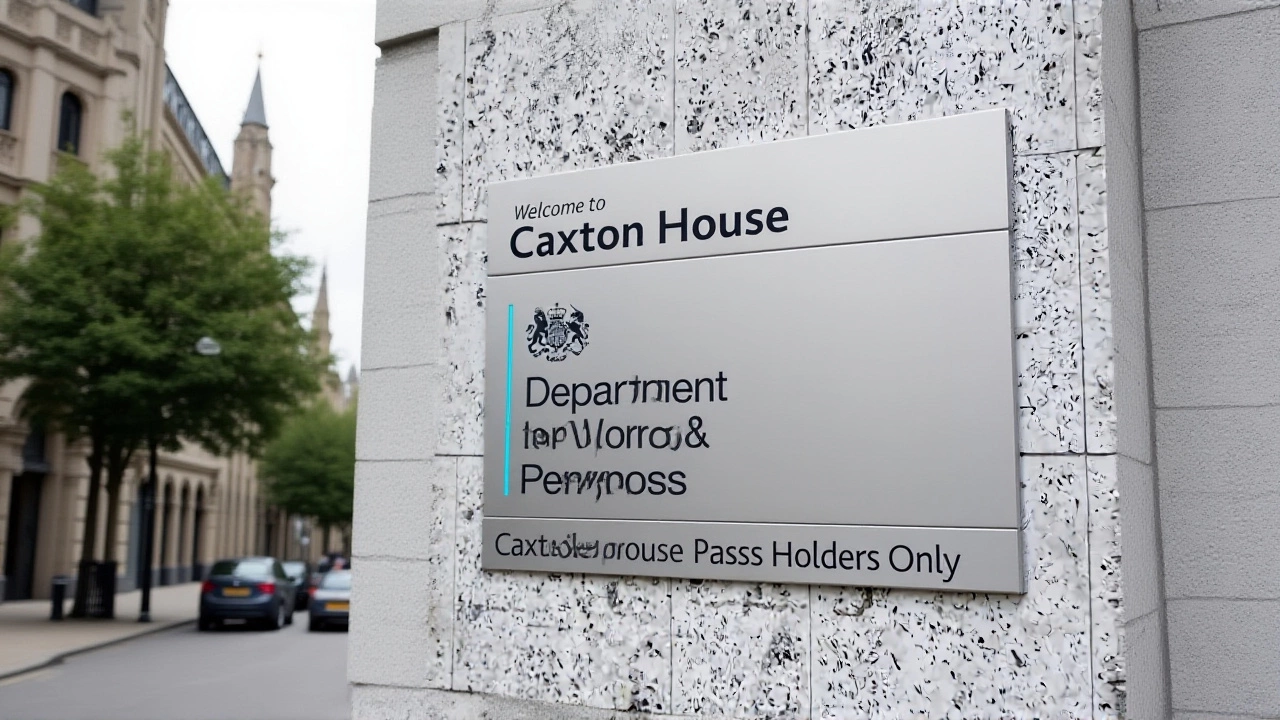For over a million households across the UK, a quiet £10 deposit appears in bank accounts each December — no application, no form, no fuss. Just a small, tax-free nudge from the Department for Work and Pensions (DWP) to remind people they’re not forgotten during the holidays. This year, the Christmas Bonus lands between December 2 and December 8, as the first full week of December marks the official qualifying window. It’s not much money, but for someone living on a fixed income, it’s enough to buy a turkey, a bag of coal, or just a little peace of mind.
Who Gets It — And Who Doesn’t
The DWP doesn’t send out checks. It doesn’t even send letters. It simply looks at its records: if you’re receiving one of the 23 qualifying benefits during that week, you get the bonus. No paperwork. No follow-up. The system works silently, automatically. Eligible recipients include those on State Pension, Attendance Allowance, Carer’s Allowance, Personal Independence Payment (PIP), and even War Widow’s Pension. It covers people with disabilities, carers, veterans, and retirees — anyone who relies on the state for basic support.But here’s the catch: if you’re not on any of those benefits during the qualifying week, you get nothing. Not even if you’re retired but haven’t claimed your State Pension yet. Not even if you’re on Universal Credit. That’s right — Universal Credit doesn’t qualify. And neither do most working-age benefits. The list is narrow, deliberate, and hasn’t changed in over a decade.
Why £10? And Why Now?
The £10 amount hasn’t budged since 2000. Adjusted for inflation, that’s roughly £21 today. Yet there’s been no public push to increase it. The DWP says it’s a symbolic gesture — not a lifeline. And it’s designed to avoid any impact on other benefits. As the official GOV.UK page states: “It will not affect any other benefits you get.” That’s intentional. The government doesn’t want recipients to lose housing support or tax credits because of this tiny windfall.Oddly enough, the bonus isn’t even tied to Christmas Day. It’s tied to the calendar. If the first full week of December falls before Christmas — as it does in 2024 — you still get it. Same if it falls after. The timing is bureaucratic, not festive. And yet, people notice. One pensioner in Stoke-on-Trent told me last year: “It’s the only thing that says ‘we see you’ all year.”

Who’s Left Out — And Why It Matters
About 14 million people receive the bonus annually. Sounds like a lot — until you realize how many are excluded. Millions on Universal Credit, which supports roughly 5.5 million households, get nothing. Working families on low incomes, disabled people not qualifying for PIP or Attendance Allowance, those waiting for benefit assessments — they’re invisible to the system. The bonus isn’t poverty relief. It’s recognition. And recognition, in this case, is selective.There’s also the residency rule. You must be “ordinarily resident” in the UK, Channel Islands, Isle of Man, or Gibraltar. That means if you’re a UK citizen living in Spain or Portugal — even if you’ve paid taxes here your whole life — you’re out of luck. The DWP directs these individuals to check “benefits for UK nationals in the EU,” but the reality is: no bonus. No exception. Not even for those who served in the armed forces or contributed to the NHS.
How It Works — And What to Watch For
The payment shows up as “DWP XB” on bank statements. Some recipients don’t even notice it — until they check their balance. Others save it for Christmas treats. Some use it to top up their heating. A few told me they use it to call their grandchildren.There’s one odd glitch: occasionally, people get two payments. Maybe because they qualify under two benefits. Maybe because of a system error. The DWP’s advice? “Contact your local Jobcentre Plus or Pension Service.” No penalties, no clawbacks — just a quick call to sort it out. That’s unusually compassionate, given how often the welfare system punishes mistakes.

What’s Next? The Silent Debate
The Christmas Bonus has become a quiet symbol of how the UK treats its most vulnerable. It’s not enough to lift anyone out of hardship. But it’s not meant to be. It’s a gesture — one that hasn’t been updated in 25 years. And yet, it’s one of the few welfare policies that still works without bureaucracy. No forms. No delays. No stigma.Some charities, like Age UK and Turn2us, have quietly called for an expansion — perhaps linking it to Universal Credit, or increasing the amount. But there’s no political will. No announcement. No debate in Parliament. It just… happens. Every year. Like clockwork.
So if you’re one of the 14 million who gets it — don’t take it for granted. It’s small. It’s simple. And for many, it’s the only holiday gift they’ll receive.
Frequently Asked Questions
Do I need to apply for the Christmas Bonus?
No, you don’t need to apply. The Department for Work and Pensions automatically checks its records during the qualifying week. If you’re receiving one of the 23 eligible benefits — like State Pension, PIP, or Carer’s Allowance — the £10 payment is issued without any action needed on your part.
Why doesn’t Universal Credit qualify for the Christmas Bonus?
The Christmas Bonus was designed decades ago for legacy benefits tied to disability, age, or war service. Universal Credit, introduced in 2013, was structured differently — as a single, streamlined payment. The government has never extended the bonus to it, despite calls from charities. Critics argue this creates inequality among low-income households.
What if I live abroad but used to pay UK taxes?
If you’re not “ordinarily resident” in the UK, Channel Islands, Isle of Man, or Gibraltar during the qualifying week, you’re not eligible — even if you’re a UK citizen. This includes retirees in Spain, Portugal, or elsewhere in the EU. The DWP advises checking its guidance on benefits for UK nationals abroad, but no bonus is available.
Will the £10 Christmas Bonus increase in 2025?
No. The amount has remained unchanged since 2000. With inflation pushing prices up over 60% since then, the real value has dropped from roughly £21 to £10. There are no official plans to raise it, and no minister has proposed doing so. The DWP treats it as a symbolic payment, not a cost-of-living adjustment.
How do I know if I’ve received the bonus?
Look for “DWP XB” on your bank statement during the first full week of December. It’s a small, one-off credit — usually £10. If you’re unsure, check your benefit award letter or call your local Jobcentre Plus. The payment is automatic, so if you qualify, you should see it.
Can I get the bonus if I’m in hospital or care home?
Yes. As long as you’re ordinarily resident in the UK and receiving a qualifying benefit, your location during the qualifying week doesn’t matter. Whether you’re in a hospital, care home, or your own house, you still qualify. The DWP considers your usual residence, not your temporary location.

